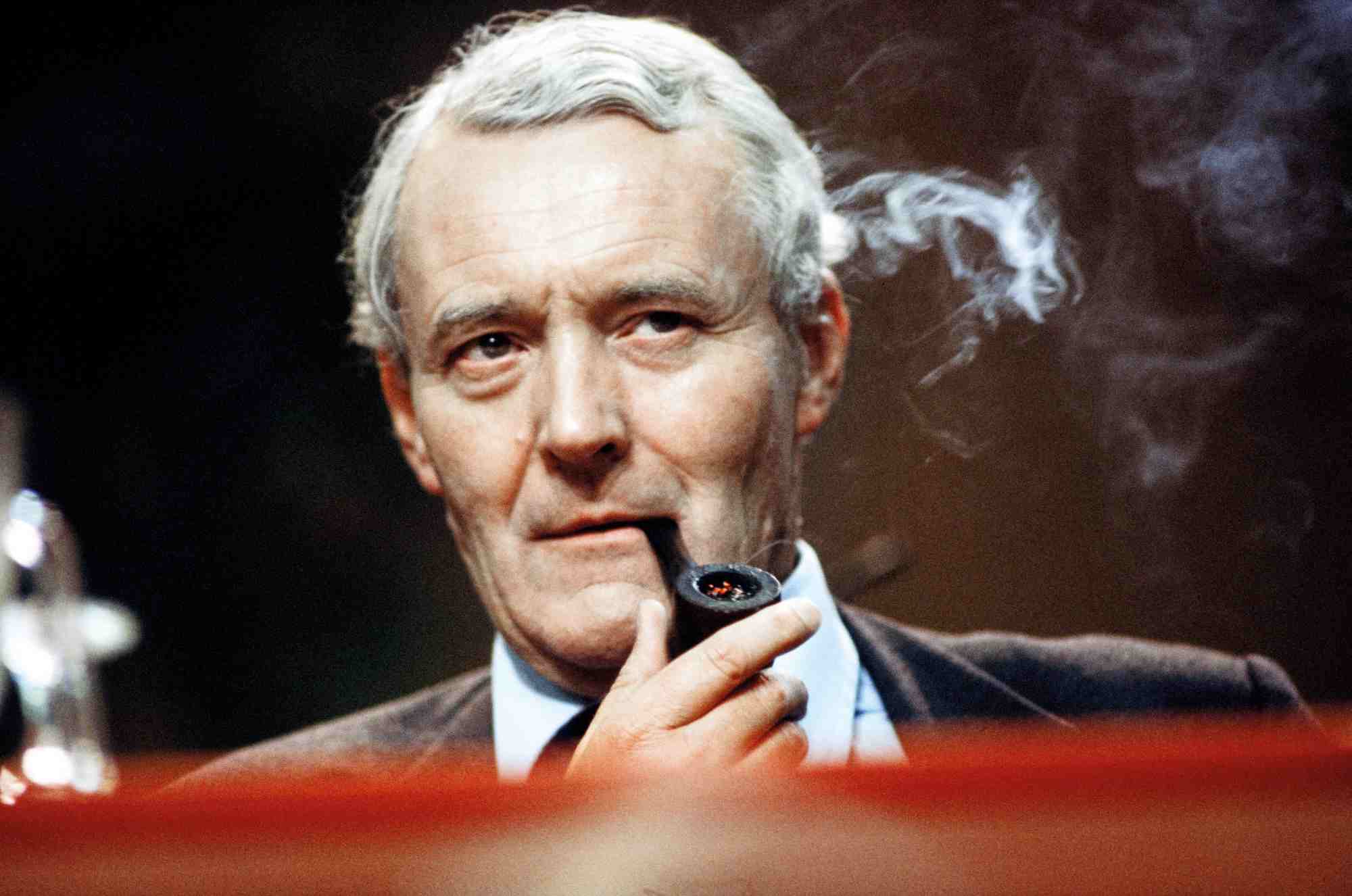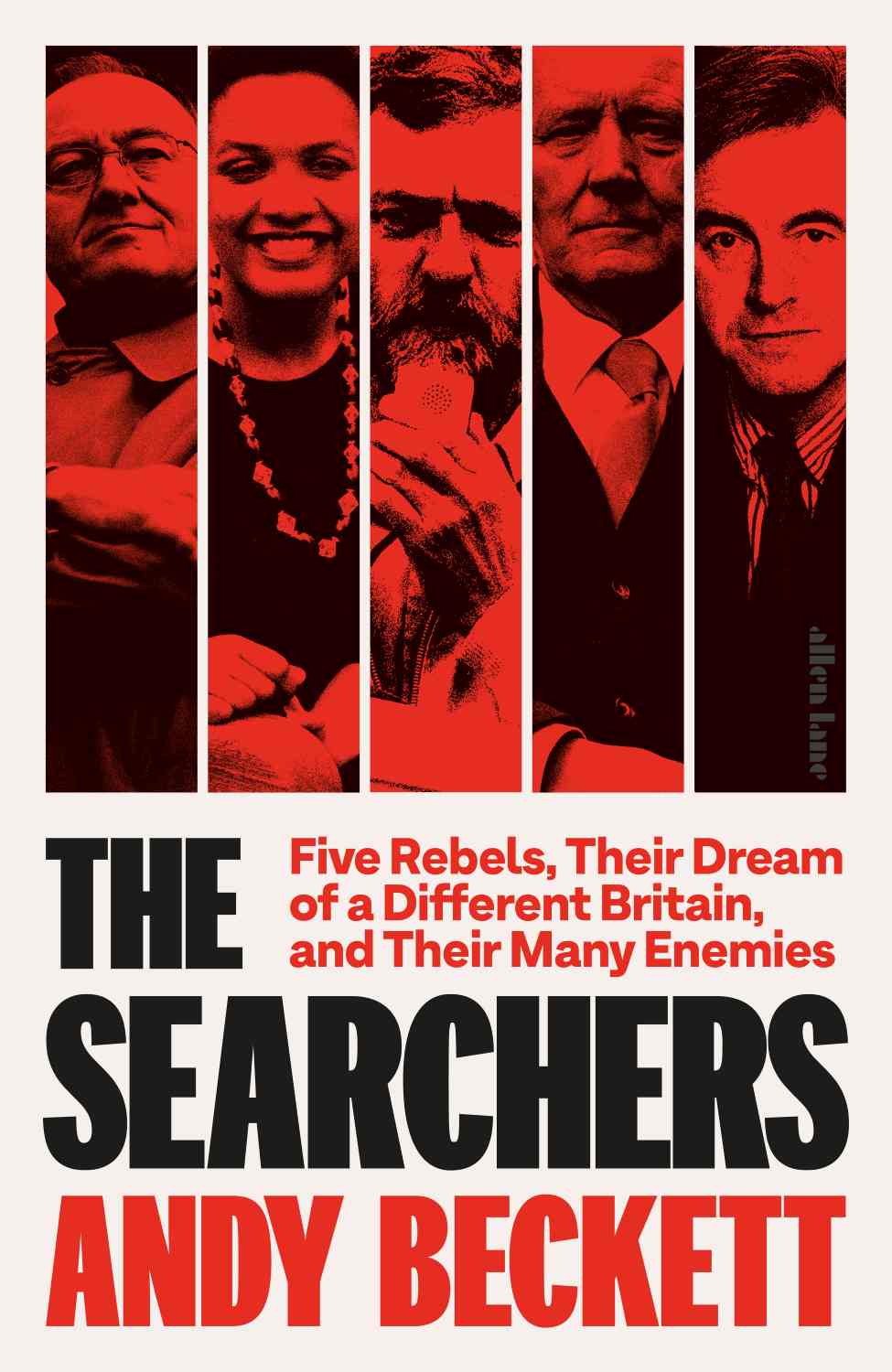Lord Davies reviews 'The Searchers'
May 2017: John McDonnell, Diane Abbott and Jeremy Corbyn at the launch of the party’s manifesto | Image by: Isabel Infantes / Alamy Stock Photo
5 min read
Although written in a slightly strained format, Andy Beckett has overall produced an honest and balanced history of Labour’s radical left
Coming in at 489 pages – plus, thankfully, a decent index and a useful bibliography – Guardian journalist Andy Beckett provides a report on the progress of “the radical left” in the Labour Party. Covering the last six decades, he starts with what he sees as Tony Benn’s radicalisation in response to the May 68 évènements, which he calls “Benn’s epiphany”, and brings us up to the end of 2023.
It focuses on the “five rebels” pictured on the dust jacket, namely Tony Benn, Ken Livingstone, Diane Abbott, Jeremy Corbyn and John McDonnell. He weaves their biographies into a chronological account of their successes and, inevitably, their failures. One has died and two are no longer Labour members, including Jeremy Corbyn who is now sitting as an Independent. The remaining two Labour MPs are still in a position to play a relevant role in the party, however. Whatever their fate, the book goes some way to providing all of them with a balanced assessment of their important contributions to the Labour movement.
I must stress that this is not an independent review. I have shared the dreams of all five, worked closely with most and count one as a family friend. And, on many occasions, I was there in the room, Zelig-like, taking part in the events that are described. While I have my own views of what went on, and might quibble on points of detail, the overall tone feels right.
The format works, although it is strained at times. The five separate timelines do not always mesh. I am also unconvinced by the suggestion of a ‘leader and disciples’ relationship between the five. Although they shared broadly the same political objectives, they chose different paths to get there. It is notable, for example, that I cannot think of a single photograph where there is more than three, let alone all five, shown together. I wish there were.
 Tony Benn: Labour Party Conference, Brighton, October 1981| Image by: Trinity Mirror / Mirrorpix / Alamy Stock Photo
Tony Benn: Labour Party Conference, Brighton, October 1981| Image by: Trinity Mirror / Mirrorpix / Alamy Stock Photo
Although the book does not say so, this is very much a London story. The younger four had their politically formative years in London in the 1970s, before moving on to become Members of Parliament for London constituencies. As a fellow activist at the time, I testify to the excitement and the hopes we shared. It all seemed possible. What I think might be made a bit clearer is that we all learnt by doing, as active members and public representatives. We also remained committed to the Labour Party.
Much of the book is taken up with Ken’s experiences in London politics. I worked closely with Ken in the key Greater London Council (GLC) period and given the disparate nature of the Labour group, the narrative confirms my view that he was one of the smartest political operators. He said things he ought not to have said. But he still ought to be recognised as the most consequential London politician of the last 80 years, if not longer. London is a different place because of his leadership, and better for it.
 March 1986: Ken Livingstone outside the GLC | Image by: Trinity Mirror / Mirrorpix / Alamy Stock Photo
March 1986: Ken Livingstone outside the GLC | Image by: Trinity Mirror / Mirrorpix / Alamy Stock Photo
The book takes 373 pages to get to what, for me, is its most interesting section. In truth what is in the final 100 pages deserves a (slightly longer) book to itself providing, as it does, an honest and balanced account of Jeremy’s period as leader and what has happened thereafter. It provides an important reminder that the Labour right did not just lose the leadership elections in 2015 and 2016; it was trounced on both occasions. The Labour left, using Jeremy and Andy Burnham’s combined votes as a rough proxy, won near to three quarters of the vote on the first ballot in 2015. And even accepting the defeat in 2020, many of those who voted for the current leadership thought they were voting for more of the same.
I have shared the dreams of all five
I do not think the right has ever faced up to the question of why its appeal to the membership is so limited. So, despite the recent Labour victory, it is still important to understand why.
One key factor was, perhaps, the shock of rank-and-file members at the parliamentary party’s backing in 2015 for the two-child benefit policy of the new Conservative government. Another suggestion is symbolised by the notorious immigration mug, representing a party that had so lost touch with its own members that it put policies they hated on a mug.
The general point is that under the United Kingdom’s political system, a winning party is inevitably a coalition, and the leadership has to work with a membership that will be wider than any single faction.
 Whatever the reasons, what does this mean for the current state of the Labour Party? Has the Labour right learnt any lessons? The available evidence, looking back to 2015, is that it has learnt nothing. Instead, it is doubling down, sticking to policies, such as the two-child cap, which are out of tune with the temper of the membership.
Whatever the reasons, what does this mean for the current state of the Labour Party? Has the Labour right learnt any lessons? The available evidence, looking back to 2015, is that it has learnt nothing. Instead, it is doubling down, sticking to policies, such as the two-child cap, which are out of tune with the temper of the membership.
I think that the weakness with the current leadership’s position, despite the recent victory, is that the membership is much where it has always been, certainly since I joined almost 60 years ago. It is desperate to win an election; prepared to give the leadership plenty of leeway, particularly when they look like winners; but looking for something that is more radical, more socialist than what has currently been on offer.
With Labour’s welcome victory, we will now see how that works out in practice.
Lord Davies of Brixton is a Labour peer
The Searchers: Five Rebels, Their Dream of a Different Britain, and Their Many Enemies
By: Andy Beckett
Publisher: Allen Lane
